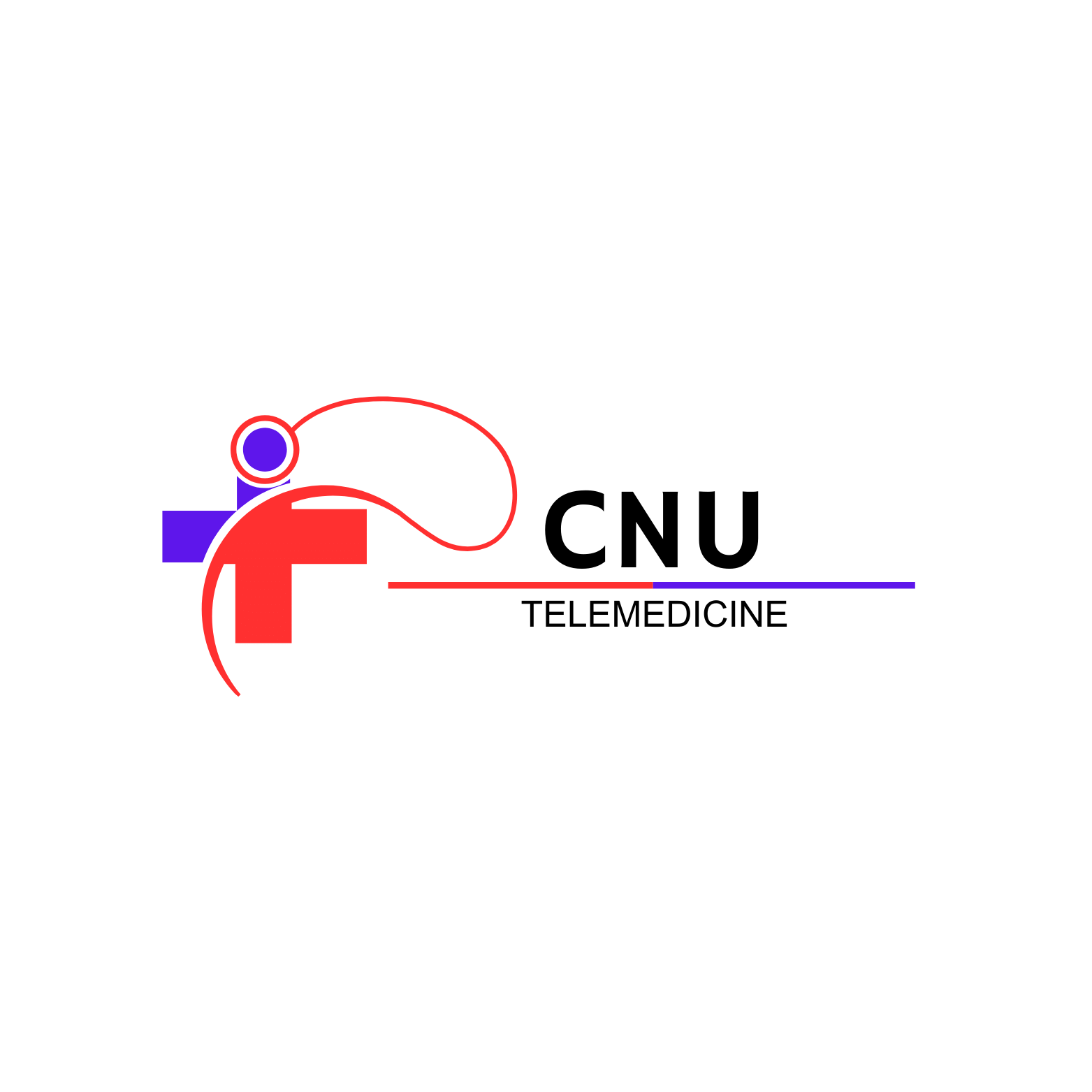Our Services
Here at CNU Telemedicine, you will learn more about the topic, uses and the background.


Priority
Features of Telemedicine
Telemedicine is now a proven and established method for societal benefit, offering various healthcare services like chronic health management, prescription compliance, remote care, and critical support. Tele-wearables also play a role in patient healing and health monitoring (Haleem et al., 2021).
Chronic Health Management
Telemedicine plays a crucial role in managing chronic health conditions by providing continuous monitoring, remote consultations, and personalized care plans. Patients with chronic illnesses such as diabetes, hypertension, or chronic obstructive pulmonary disease (COPD) can benefit from remote monitoring devices that track vital signs, such as blood pressure, blood glucose levels, or oxygen saturation. Healthcare providers can remotely review this data, identify trends, and intervene promptly if necessary. Telemedicine also facilitates regular follow-up appointments through virtual consultations, allowing patients to discuss their symptoms, medication adherence, and lifestyle modifications with their healthcare team. By enabling proactive management of chronic conditions, telemedicine helps to prevent complications, reduce hospitalizations, and improve the overall quality of life for patients.
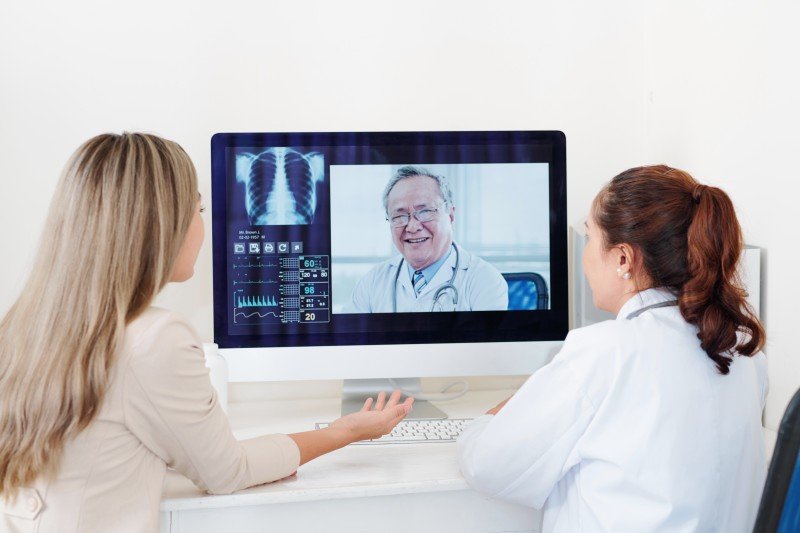

Prescription Compliance
Telemedicine promotes medication adherence and compliance by streamlining the prescription process and providing patient education and support. Through electronic prescribing (e-prescribing) systems, healthcare providers can electronically send prescriptions directly to patients’ pharmacies, eliminating the need for paper prescriptions and reducing the risk of errors. Patients can receive reminders and notifications through telemedicine platforms to take their medications on time, refill prescriptions as needed, and track their medication adherence over time. Additionally, telemedicine allows patients to communicate with their healthcare providers about any concerns or side effects they may experience, facilitating medication adjustments or modifications when necessary. By promoting adherence to prescribed medications, telemedicine helps to improve treatment outcomes and prevent disease progression.
Throughout Care
Telemedicine ensures continuity of care by facilitating seamless communication and coordination between patients, healthcare providers, and specialists across different care settings. Whether a patient is receiving primary care, specialty consultations, or post-operative follow-up, telemedicine enables access to healthcare services from anywhere, at any time. Through virtual consultations, patients can consult with their primary care physicians, specialists, or therapists without the need for travel or face-to-face appointments. Telemedicine platforms also allow healthcare providers to securely share patient information, medical records, and test results, ensuring that all members of the care team have access to relevant clinical data. By promoting collaboration and information sharing, telemedicine enhances the continuity and quality of care for patients throughout their healthcare journey.
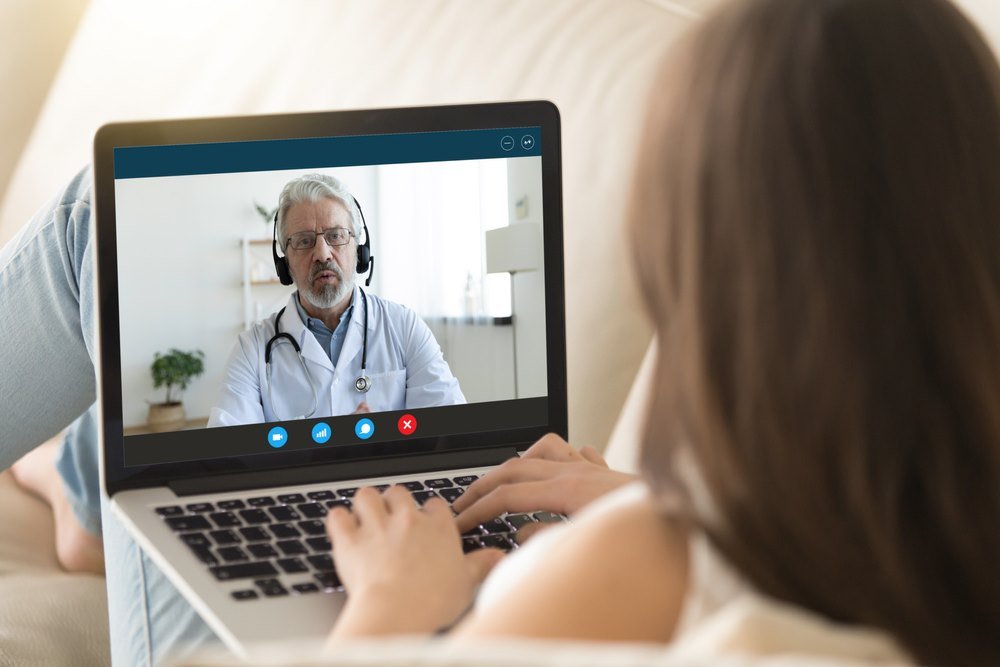
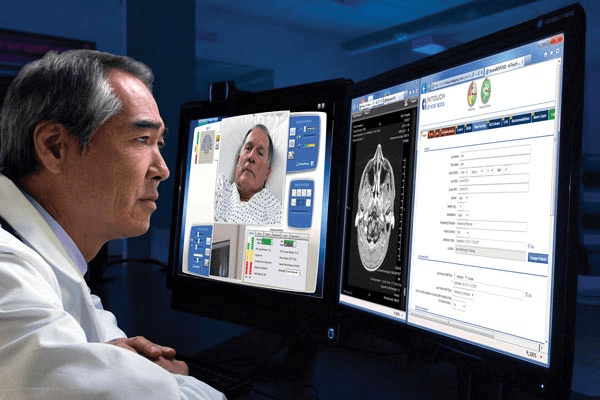
Store and Forward
Store-and-forward telemedicine involves capturing and storing patient data, images, or records and forwarding them to healthcare providers for review and analysis at a later time. This asynchronous communication method is particularly useful for sharing diagnostic images, laboratory results, or clinical notes between healthcare professionals in different locations or time zones. For example, a primary care physician may capture photos of a skin rash or lesion and send them to a dermatologist for evaluation and diagnosis. Similarly, radiologists can review and interpret imaging studies, such as X-rays or MRIs, remotely, without the need for patients to be present. Store-and-forward telemedicine enhances access to specialized expertise, reduces wait times for diagnostic evaluations, and facilitates timely decision-making in patient care.
Telemedicine
Significant Application Areas
Primary Health Care and Routine Visits
Remote Consultation – A patient can consult with a family doctor for a checkup or advice on minor health complaints.
Prescription Management – Prescriptions can now be issued remotely on a telemedicine platform.
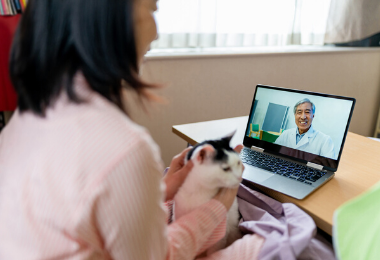
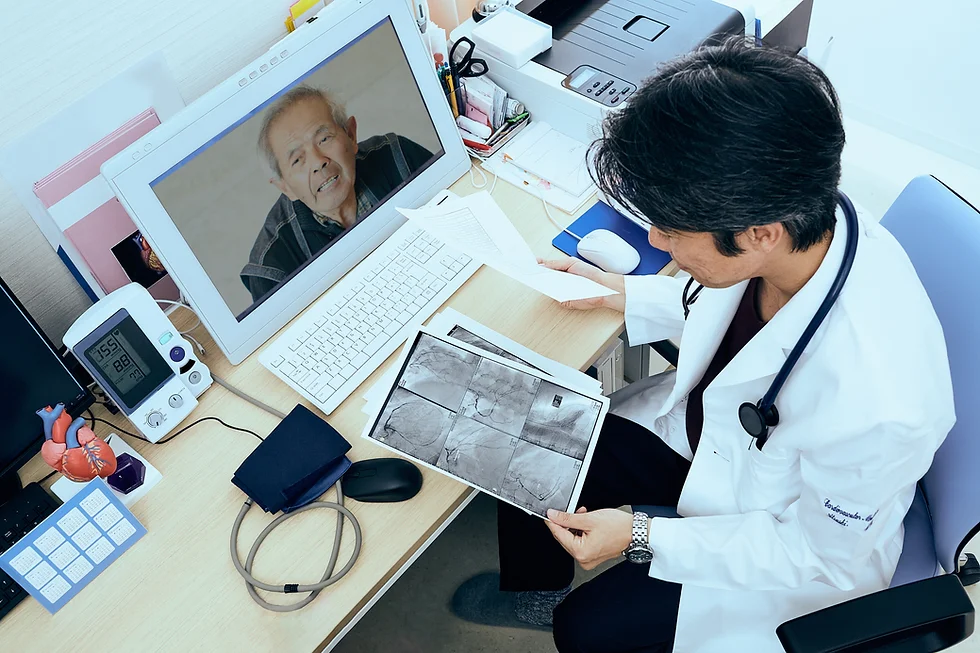
Special Consultation
Access to leading specialists – Patients in remote and poorly serviced areas have the opportunity to consult with experts in the field of cardiology, dermatology, and neurology without leaving their homes.
Second opinion – A patient may be more likely to seek an additional opinion on a telemedicine platform from a specialist who is on the other side of the world.
Chronic disease management.
Remote monitoring: Patients with chronic diseases such as diabetes, hypertension, and chronic obstructive pulmonary disease can have their health monitored through wearable gadgets and telemedicine services.
Continuous care: Telemedicine guarantees continuous care and speedy health interventions, which could prevent short-term hospitalization while improving the patients’ quality of life.
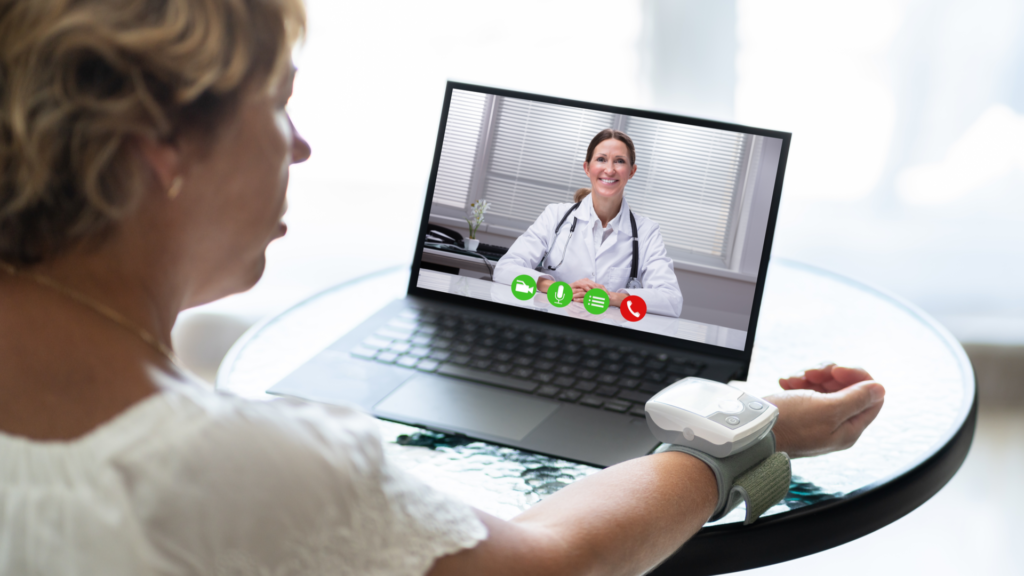
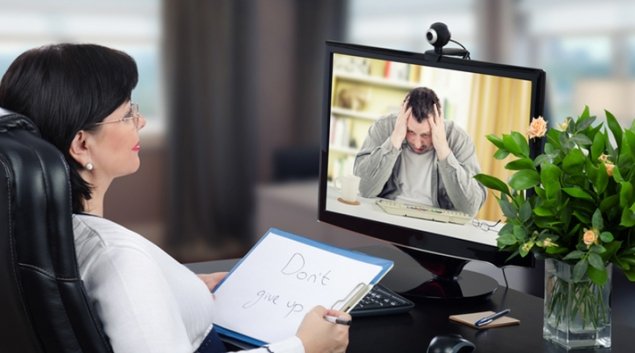
Mental health Services
Counseling and therapy: Patients receive psychotherapy and counseling services and consultation from psychiatrists to manage their mental challenges while at house premises.
Crisis intervention: Telepsychiatry offers instant intervention during mental health crises.
Education and Training
Remote Training: Medical professionals can undertake continuing medical education and training through telemedicine platforms.
Case Consultations: They can further engage in case-based discussions and mentorship virtually from diverse locations.
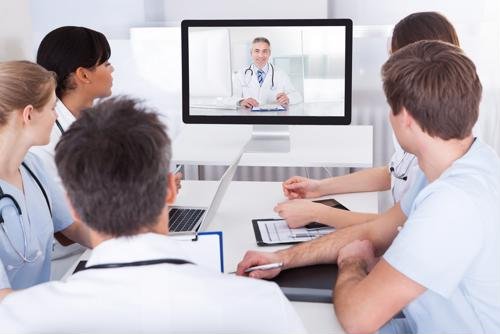

Public Health and Preventive Medicine
Health Education: Using telemedicine, a specialist can reach out to large populations to give public health advice and information to improve preventive care.
Screening Programs: Remote screening programs for diseases such as diabetes, hypertension, and mental health issues can be developed using telemedicine platforms.
Rehabilitation Services
Physical therapy: A patient can receive instructions while at home and perform guided physical therapy while the therapist monitors real-time progress.
Post-operative care: Telemedicine can facilitate post-surgery follow-up and rehabilitation to support the patients’ recovery outcomes.
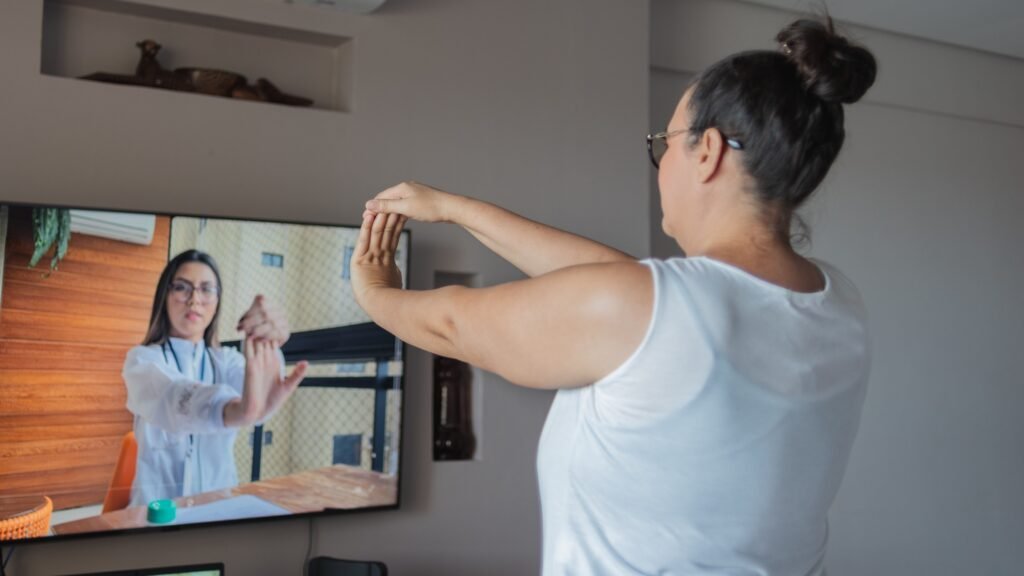
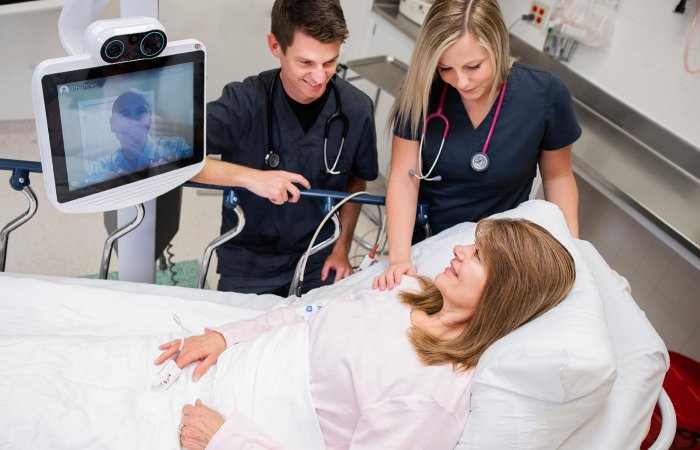
Emergency care and Triage
Initial Assessment: Initial assessment and Triage in emergency can be done using telemedicine in such a case, and the patients will be advised if they require a visit to the emergency room. There may be remote support by specialists to the initial hospital or facility to help in keeping patients determined stable.
Pediatrics
Parental support: Telemedicine allows parents to easily access pediatric healthcare, especially when they don’t need an emergency visit regarding skin rashes, fever, and the common cold.
Special needs: Children with special health needs always need proper care and routine assessments, the need for daily travel could be anxiety; telemedicine creates a safer, quick, and less scary access plan.
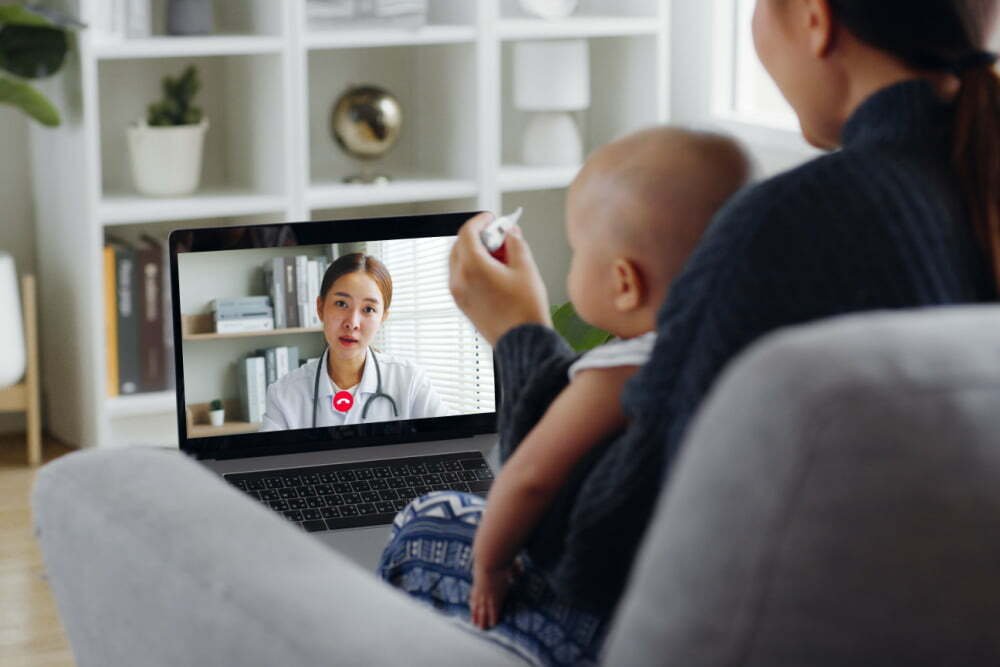

Geriatric care
Home-based care: Elderly patients can receive check-up care and monitoring that could allow them to visit the clinic less while being monitored regularly and feeling more comfortable at home.
Chronic disease Management: Telemedicine is particularly beneficial in cases where older patients have multiple diseases to successfully manage them.
Know your hospital's location
Address: Don Mariano Cue Street, Corner J. Llorente Street, Brgy. Capitol Site, Cebu City, Cebu, Philippines 6000
Phone: +63 (32) 255-8000
Email: info@chonghua.com.ph
Website: www.chonghua.com.ph
Address: Mantawi Int’l Drive, City South Economic Administrative Zone, Mandaue City, Cebu, Philippines 6014
Phone: +63 (32) 233-8000
Email: info@chonghua.com.ph
Official Website: www.chonghua.com.ph
Address: B. Rodriguez Street, Cebu City, Philippines, 6000
Phone: 032-253-9891
Email: osm@vsmmc.doh.gov.ph
Website: vsmmc.doh.gov.ph
Address: Osmeña Boulevard, Sambag II 6000 Philippines Cebu City, Philippines
Call: (032)411-6900 / (032) 260 9740
Email: dohcvchd711it@gmail.com
Website: ro7.doh.gov.ph
Address: Osmeña Blvd, Cebu City, 6000 Cebu
Phone: +63 32 2555555
Email: info@cduh.com.ph
Website:cduh.com.ph
Address: Corner of 41 F. Ramos and V Ranudo Sts
Phone: +63 32 2531871
Website: www.cim.edu.ph
Email: admin@cim.edu.ph
Website:cvghofficial
Address:No. 400 Tres De Abril Street, Cebu City 6000, Philippines
Phone: (032) 261 2112
Email: adventisthospitalcebu@gmail.com
Website: adventisthospital-cebu.org
Address: Kauswagan Road 6000 Talamban, Philippines
Phone: +63 032 343-7777
Email:cnghinfo@gmail.com
Website: cebudocgroup.com.ph
Address: Gorordo Avenue, Lahug, Cebu City 6000 Philippines
Phone: (032) 233 8620
Email: pshcares@perpetualsuccourcebu.com
Website: perpetualsuccourcebu.com
Address: Urgello 6000 Cebu City, Philippines
Phone: 0998 561 2707
Email: swumedcustomerservice.swu@phinmaed.com
Website: swu.edu.ph
Address: Basak San Nicolas 6000 Cebu City, Philippines
Phone: (032) 261 9989
Email: samch.doh@gmail.com
Website: samch.doh.gov.ph
Address: B. Rodriguez St, Cebu City, Cebu
Phone: (0922) 2168396 / (032) 2535621 / (032) 2549731
Email: info@cebumaternityhospital.com
Website:.cebumaternityhospital.com
Address: 210 R-Landon St. Sambag 1, Cebu City Philippines 6000
Phone: (032) 238 – 6870 or 238 – 0000
Email: info@svgh.ph
Website: svgh.ph
Address: Natalio Bacalso Ave 6000 Cebu City, Philippines
Phone: (032) 254 0517
Email: cebucitymedicalcenterofficial@yahoo.com
Website: cebucity.gov.ph
Address: 982 N. Bacalso Ave., Basak Pardo, Cebu City, Philippines
Phone: 265-5833 / 265-5839/ 0920-911-3221
Email: info@acemedicalcentercebu.com
Website: acemedicalcentercebu.com/
Address: 85 Osmena Boulevard 6000 Fuente, Philippines
Phone: (032) 253 1901
Email: vcmcuccpsocmed@gmail.com
Website: visayasmedcebu.com.ph

